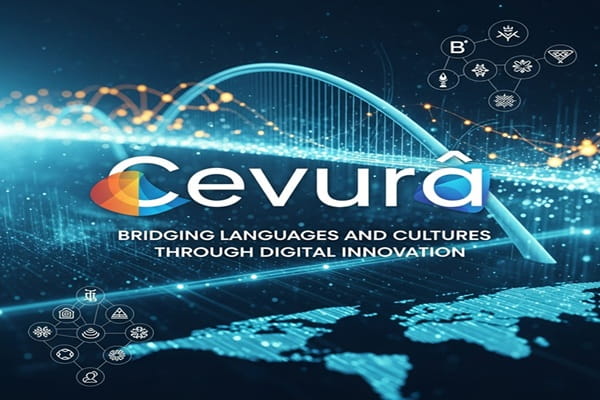Let’s be honest: if you’ve spent any time on a college campus or scrolling through TikTok, you’ve probably heard someone mention “ID God.” To many young adults, the name carries an almost legendary status—supposedly the go-to website for fake IDs that look so real, even scanners can’t tell the difference.
On the surface, it sounds tempting: order a card online, skip the bouncer’s glare, and enjoy the privileges of being “21.” But here’s the thing—while the idea might seem harmless, using a fake ID is anything but risk-free. From serious legal trouble to identity theft, the dangers are way bigger than most people realize.
So, before you or your friends even think about typing “ID God” into a search bar, let’s break down what it actually is, how it works, why it’s controversial, and the very real risks you need to know about.
What Is ID God, Really?
“ID God” isn’t just one single website—it’s more like an umbrella term that refers to a collection of online fake ID vendors. The original site first appeared in the early 2010s, supposedly based overseas, and since then, dozens of copycats and resellers have popped up under the same name.
These websites promise high-quality fake driver’s licenses with features like holograms, scannable barcodes, and magnetic strips. Most buyers? College students and young adults trying to get into bars, clubs, or buy alcohol before they’re of age.
How Do ID God Websites Work?
Ordering from a site like ID God usually follows a pattern:
-
Pick your state – Choose the driver’s license template you want (California, Texas, New York, etc.).
-
Enter your details – Upload your photo, personal information, and sometimes even a signature.
-
Pay in crypto – Most sites only take Bitcoin or other anonymous payment methods.
-
Wait for delivery – The ID typically arrives by international mail, often hidden in creative packaging.
Some even offer group discounts for bulk orders, which makes them especially popular among college roommates or fraternities.
On paper, it sounds slick. But here’s the uncomfortable truth: every step of this process exposes you to serious risks—legally and personally.
Why Fake IDs Are Harder to Detect (But Still Risky)
Back in the day, fake IDs looked like something you’d print off a school computer. Today, vendors like ID God claim to use advanced counterfeiting techniques, including:
-
UV ink and holograms
-
Raised lettering and lamination
-
Scannable magnetic strips and barcodes
And yes, some of these fakes do get past bouncers and bartenders. But don’t let that fool you. Detection technology has leveled up too.
How They Get Caught
-
ID Scanners: Many clubs, bars, and liquor stores use scanners that cross-check barcodes with government databases.
-
Trained eyes: Staff are often trained to spot subtle errors like spacing, font styles, or microprint issues.
-
Institutional safeguards: Universities, venues, and stores now use mobile apps to verify IDs in seconds.
So, while a fake might work once or twice, it’s only a matter of time before you get caught.
The Legal Fallout: What Happens If You’re Busted
Here’s the part most people try not to think about: fake IDs aren’t just “college pranks”—they’re criminal offenses.
In the U.S., possessing or using a fake ID can lead to:
-
Fines up to $5,000
-
Jail time (especially if you’re distributing IDs)
-
Permanent criminal record
-
Loss of your driver’s license
Some states even tack on extra charges for “intent to mislead,” meaning just trying to use the ID at a bar or liquor store could count as another offense.
And don’t forget: federal authorities are involved too. U.S. Customs and Border Protection (CBP) and Homeland Security frequently intercept fake ID shipments. Buyers have reported visits from agents after their packages were flagged.
Why ID God Keeps Trending
If it’s so risky, why do people still do it? A few reasons:
1. Pop Culture Influence
Movies, music, and TikTok clips glamorize fake IDs. You’ll even find people unboxing fake IDs on social media, turning it into a kind of trend.
2. Age-Based Frustration
In the U.S., the drinking age is 21—higher than in many other countries. For young adults, the restriction can feel like an unfair barrier to social life.
3. Ease of Access
Ordering online with crypto makes the process feel almost too simple, giving a false sense of security.
But remember: just because something is trending online doesn’t make it safe—or smart.
The Risks Nobody Talks About
Beyond legal trouble, there are hidden risks that don’t get nearly enough attention:
Financial Scams
Not all ID God sites are “legit” (even in the shady sense). Some take your money and send nothing. Others ship low-quality cards that don’t work.
Identity Theft
Think about what you’re handing over: your full name, photo, date of birth, address—even your signature. In the wrong hands, that’s everything a scammer needs to steal your identity.
Also Read : ICOSTAMP: A Complete Guide to the ICO Tracking Platform
Social Fallout
Even if you dodge legal penalties, getting caught with a fake ID can wreck your reputation:
-
School suspensions or disciplinary action
-
Loss of scholarships or student housing
-
Damaged career prospects if it shows up on your record
For something that’s supposed to be a “shortcut,” the long-term consequences are brutal.
How Law Enforcement and Cybersecurity Are Fighting Back
Governments aren’t taking fake ID culture lightly. Here’s what’s happening behind the scenes:
-
Package monitoring: Customs officials are trained to spot suspicious shipments.
-
Crypto tracing: While Bitcoin feels anonymous, transactions can be tracked with the right tools.
-
Honeypot sites: Some fake ID vendors are actually sting operations designed to catch buyers.
Cybersecurity experts are also stepping in, tracking and shutting down ID God domains by analyzing their website code and patterns.
Safer Alternatives to Fake IDs
Okay, so maybe this isn’t the “cool” part of the article, but it’s the real one:
Wait It Out
It might not be fun to hear, but waiting until you’re legally allowed to drink or enter clubs is the safest option. The risks just aren’t worth a few nights out.
Use Real Identification
If you just need ID for travel, employment, or general verification, you’ve got legal options:
-
State-issued ID cards
-
Passports
-
School IDs (limited use, but valid for some situations)
These give you what you need—without risking fines, arrests, or stolen data.
The Bottom Line: Is ID God Worth It?
Here’s the straight answer: No. Absolutely not.
While ID God might sound like a clever way to skip age restrictions, the legal, financial, and personal risks are massive. Law enforcement is getting smarter, technology is getting sharper, and the internet never forgets.
One night at a bar isn’t worth jeopardizing your future career, your safety, or your freedom.
If you’re feeling pressured, remember this: the people bragging about their fake IDs online? They’re not showing you the ones who got fined, expelled, or had their identity stolen.




